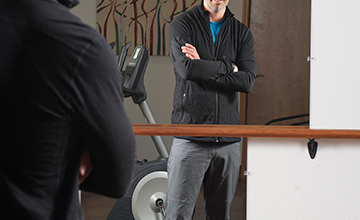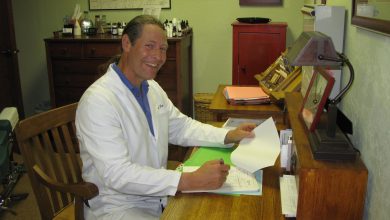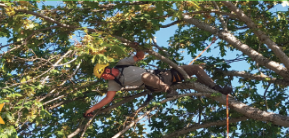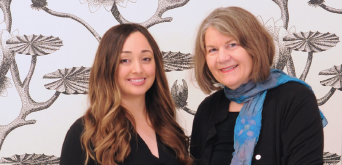Making “Wild Honey” from the Music of the World
Megan Danforth, Cyrise Schacter, and Peia Luzzi have a passion world folk music—songs that have been sung for hundreds of years in villages all over the world. As the vocal trio Wild Honey, they gather songs from the far corners of the earth and give them new life in captivating three-part harmony. With a concert coming up at the Britt on September 2nd, and their first CD about to be released, I asked them to share the story of their unique musical journey.
You all have a deep love for traditional world music. Tell us about what makes these songs so special and what gifts they can offer us.
Megan: Music is quite likely the greatest connecting point across cultures. We don’t have to speak the language or share the faith or have walked the landscape to feel completely moved by the music of a culture other than our own. The music of other cultures expands our inner landscape, especially when it rings with strange tuning or odd rhythms that stretch us beyond what’s comfortable. It is an incredible celebration of the beautiful diversity of sound that has been created by humans for thousands of years.
Cyrise: Singing the folk musics of the world’s peoples offers us the opportunity to experience and share a bit of their essence. The process of learning new songs requires us to learn about the culture and people who created them, which connects us more deeply to the wondrous human family.
Peia: Because many of the songs that Wild Honey sings are hundreds of years old, they reach back to a time when humans lived closer to the earth, a time before we lost the integral structure of the village and when our very lives depended on our direct connection to the land and one another. I think songs are like a bridge, they carry the vibration of their creators across the expanse of time. When we sing those songs we tap into this vibration and experience a bit of the wisdom of those cultures.
The three of you met through the Rogue World Ensemble, a world music community choir that Megan founded in 2009. Tell us how you came together as Wild Honey.
Cyrise: Megan and I met when she brought me in to be the first musical director for the Rogue World Ensemble. I was literally unpacking my stuff in Ashland as we kicked off the first choral season. The following year, Peia was by chance given a spare ticket to our concert. She wrote to me the following day about how inspired she was to hear the musics of so many peoples. She came to audition, and within three seconds I was welcoming her to the choir and calling Megan and tell her that I had found the third voice for our forming trio. The three of us discovered in each other not just a wealth of musicality but a deep passion for these songs that we had gathered.
What’s the story behind the name Wild Honey?
Cyrise: The name “Wild Honey” was suggested to us by our friend and Rogue World Ensemble singer Elise Peters. We loved the image of bees gathering pollen from diverse and wild growing flowers and then transforming it into a sweet honey. The process of making “honey” out of the wild, raw materials of village folk music is a musical and alchemical experience that brings us great joy, and hopefully results in a sweet, healing offering for our audiences.
How do you go about gathering your songs?
Megan: All three of us have rich musical lives independent of each other. Peia is a touring solo artist who collects songs throughout her world travels from Northern Europe to India to Australia. Cyrise has long led the Jewish community in the sacred and secular songs of their faith. As the founder of Rogue World Music, I work closely with Village Harmony and a number of their regional teachers who specialize in folk styles ranging from Balkan to Greek, Georgian, Ukrainian, Appalachian, Gaelic and others. Many songs come into our lives and hearts in this way.
Your songs come in a variety of languages and vocal styles. Tell us about your process for learning and adapting them.
Cyrise: Learning songs with each other is like unwrapping a present from another land, another place, another time. We open the gifts and together get to figure out how it works in the context of who we are and what we bring to it. We try them on like different outfits, figuring out where adjustments are needed to make them fit us well.
Megan: Because we sing songs from so many diverse regions, it can often take months or even years to fully embody the music in the way we seek to. We repeatedly refer to source recordings, study pronunciation, timbre, and tone, and spend countless hours scrutinizing the shapes of our vowels. Cyrise and Peia love to joke about my mid-western accent, as it does sneak its way into certain songs sometimes.
By singing these traditional songs and giving them a wider audience, you are also helping to preserve them. Tell us what it means to be a “song keeper”.
Peia: I think of songs as living on our breath–if they are not carried and sung, they are lost and forgotten. The work of a song keeper is to not only gather the song, but also its meaning, the story behind it, and in some cases, the tale of the lost culture who wrote it. Much of the time, we sing in languages which we do not speak ourselves, or languages which are no longer spoken. So song keeping is a work of language preservation, as well as passing on the stories, feelings and thoughts of the cultures who created them.
What do you find unique about the experience of singing in a trio?
Megan: I feel very strongly that singing in community is one of the most powerful actions we can take to cultivate connection, strength, and joy. Singing in an intimate trio is very powerful and cultivates your ear for all the nuances that can get overlooked when singing in a larger group. It isn’t always easy to find the right blend of voices—or characters for that matter! We are very lucky that our voices blend beautifully with one another and our hearts adore each other.
What are your goals for the future?
Peia: We aim to continue refining our skills and the work of song gathering so that we can bring this beautiful music to life here in the Rogue Valley and beyond. I know Megan is planning to travel to the Caucasus Mountains to continue her study of traditional Georgian folk songs. I will be traveling to Ireland in September into to the villages west of Dingle, where Gaelic is still spoken and the old songs survived. We are also very excited to be releasing our first album later this year!
You can see Wild Honey at the Britt Performance Garden on September 2nd. Visit their Facebook page at www.facebook.Wild-Honey-Trio.




